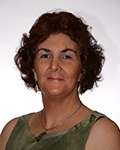Jennifer (Jenny) Bassett

Research Details
Thesis Name
Simulation interactions; the memorable moments: A grounded theory studyThesis Abstract
To explore the gap in the literature and to offer evidence to support current teaching practices with regard to simulation. In particular, it is proposed that the following question be asked, 'What is the learning about communication in, and for, practice, that occurs from simulation interactions, for third-year undergraduate nursing students and graduate nurses'? Aim 1: To better understand the features and characteristics of simulation experiences that contribute to student learning about communicating during patient interactions. Aim 2: To generate a theory that offers an explanation of the contingent factors important for students learning about positively engaging and interacting with patients.
Why My Research is Important/Impacts
The significance of this project's outcomes is to add to current scant literature, that informs the long-standing discussion regarding the contribution of simulation in teaching and learning in undergraduate nursing programs (Hayden, 2011). While simulation is widely used in teaching, it's not yet known which modalities of simulation are most effective in advancing nursing students professional practice skills. Owing to the pressures presently being placed on clinical placement for undergraduate nursing students, there is current debate regarding the replacement of clinical placement hours with quality simulation experiences (Iskander, 2015; Watson. et. al, 2012). A better understanding of the nuances of the modalities of simulation may assist in the articulation of this. It's beyond the scope of this study, however, if we better understand simulation we will have a better understanding to work with. It is anticipated that this project will add to the body of knowledge that informs teaching practices in preparing work-ready graduates to provide quality care for patients.
